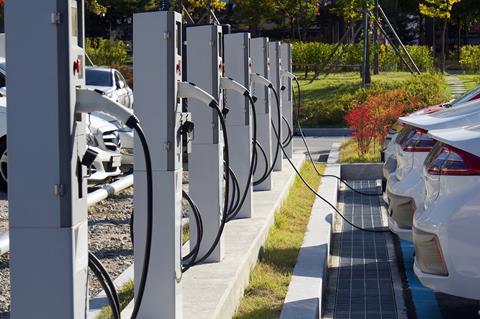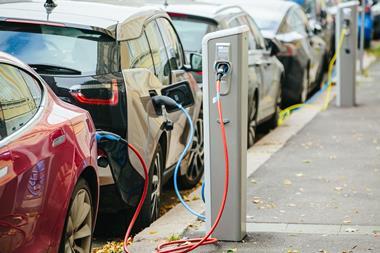As the roll-out of electric vehicle charging points (EVCPs) across the UK gathers pace, commercial landlords and their tenants should be looking at the role they will play in the electric car evolution.

Obvious contenders for EVCPs are locations where ample parking spaces can be found – industrial estates and retail parks. These usually have multiple units, subject to individual lets, with common areas, such as car parks, used by all tenants.
The landlord usually looks after the common areas, passing the associated cost to tenants as a service charge. This arrangement gives tenants the right to use these areas, and landlords usually have a limited entitlement to interfere.
While the installation of EVCPs is likely to mutually benefit both landlords and tenants, there will be associated costs.
Landlords will want to ensure they have the necessary access rights to install the required infrastructure. Although the matter will depend on individual lease terms, most landlords are unlikely to be able to pass initial installation costs to their tenants.
Once installed, landlords will want to charge the cost of maintaining, servicing and upgrading the EVCPs to their tenants. Again, this will depend on the terms of leases, but it is not guaranteed that these costs will be recoverable from tenants.

Control of access to EVCPs is another factor to consider – whether the public will be allowed to use them, the extent to which tenants will be liable for electricity costs and whether any tenants will be left with fewer parking spaces than they are entitled to.
The installation of EVCPs ought to benefit both commercial landlords and tenants. Before doing this, though, it is worth checking leases. If these are not carefully considered at the outset, there is a risk of disagreement over who bears responsibility for what, leaving someone with an unexpected charge for charging.
David Ford is senior solicitor in litigation at Brodies





























No comments yet